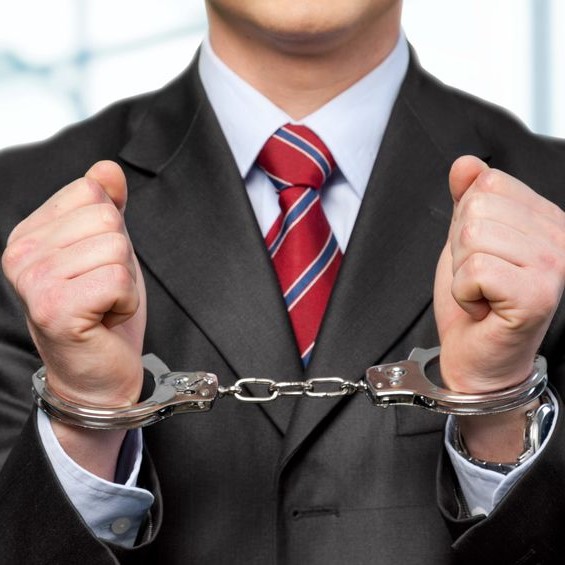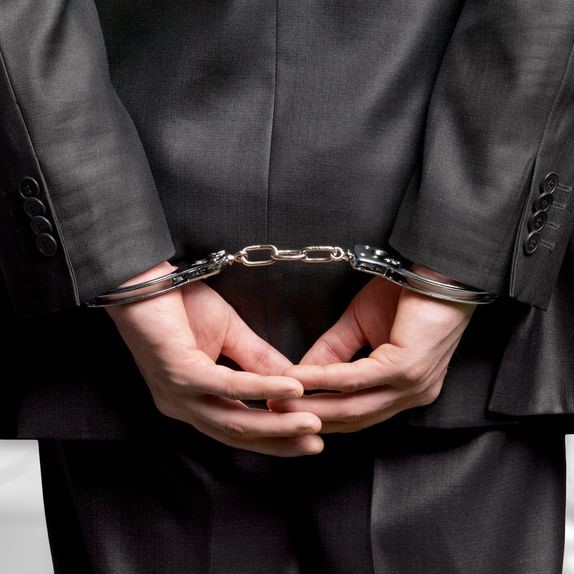
What are white collar crimes examples?
White collar crime in criminology is defined as a non-violent crime that has a primary motive of financial gain in nature. The persons found committing White collar crimes are typically in a position of professional power or has a certain level of prestige. Ironically, so it would seem, the white collar crime is committed by person that are well compensated in their position and profession.
White collar crimes are often committed by corporate executives. They have the behind-the-scenes access to information that is often private in nature and secured by the company they are employed. They are able to create an elaborate scheme that will result in financial gain. Corporate executives aren’t the only ones guilty of white collar crimes though. Private home nurses or a blue collar contractors have been known to commit white collar crimes as well.
From an high level ranking executive to a blue collar contractor, white collar crime with examples would be any of the following:
A private home nurse or a blue collar contractor builds a close bond with a patient/customer. Overtime, they convince the person they are acting in their best interest and “charm” them out of their bank account information and the money in the account, have them listed as a beneficiary in their will, and more. White collar crimes by high ranking executives include the following:
- Insider trading
- Antitrust violations
- Counterfeiting
- Intellectual property theft
- Credit card fraud
None of these white collar crimes involve violence, however, the impact they leave on the individual victims, can be devastating in other ways. The economy and society are affected as well, with one example being the white collar crimes committed by Bernie Madoff. Madoff was a non-executive of NASDAQ, a financier, investment advisor, and market maker. He was found guilty of and sentenced to prison for a Ponzi scheme he masterminded, worth multibillion-dollars from investment victims.
What is the most common white collar crime?
Examples of white collar crimes include the following:
- Corporate Fraud: This is when financial information has been falsified by high level executives, or their assistants and secretaries, creating and resulting in insider trading, and schemes that were devised to conceal the fraud activities within the company. These actions were found to impede the SEC (Securities and Exchange Commission) and other regulating bodies from conducting inquiries into a company’s financial status.
- Embezzlement: When an individual has been entrusted by their employer or another person to manage money or property has used that position and trust to misused funds. One example is an employee discovers a way to redirect company money into a personal bank account belonging to them or a politician spends the campaign fund contributions for personal expenses.
- Ponzi Schemes: In the 1920s, there was man, Charles Ponzi, that made $250,000 daily with a mail coupon fraud he created. From that time forward, it has been referred to as a Ponzi scheme, which appears on all fronts as an investment promising those who buy into it high returns with minimal or no risk. A Ponzi scheme falls apart when the mastermind isn’t getting any new investors and they don’t have any more new investments to “sell”.
- Extortion: When an individual or institution is coerced by an individual or individuals to hand over any money, property, or services for exchange of “protection” from others. Or when an individual pays another money to keep them from divulging information, privately within a family or company, or publicly that can damage their reputation and standing.
- Bankruptcy Fraud: When an individual has occurred an insurmountable debt, they can file for bankruptcy as a relief. Within bankruptcy, creditors are required to accept only a portion of the debt owed them for nonessential assets. Bankruptcy fraud is committed when that person that file for this help has hidden property from the bankruptcy court so that it wasn’t included in the filing.
Is robbery a white collar crime?
In legal terms, no. While any of the white collar crimes described above result in the victim(s) feeling as if they were robbed, and the results are traumatic, even debilitating in some cases, they are not considered a robbery.
The psychology between these white crimes listed and a robbery are different for the perpetrator, being that a robbery is confronting the victim. White collar crimes do not have direct contact with the victim typically. The victims of robbery are often put in physical danger where white collar crimes do not involve physical danger or harm by the perpetrator.
Why is white collar crime bad?
Even Though white collar crimes are different than street crimes, they create severe results that are devastating on society as a whole, not just an individual like a street crime, even more damaging in many ways. While white collar crimes are not violent, they destroy lives irremediably with loss of financial savings, ruin companies, and have led to victims commit suicide.
White collar crimes have a network of people, affected hundreds, even thousands of people with pyramidal schemes. Companies go broke and end up filing bankruptcy, which causes employees of those companies losing their jobs. Those job losses result in less money into the system, and the snowball keeps rolling and growing.

What are the characteristics of white collar crime?
There are three characteristics that define white collar crimes:
- The perpetrator has legitimate access to their target based on their position.
- The perpetrator separated from the target or victim.
- The perpetrator’s actions have a hollow appearance of legality and legitimacy.
White collar crimes are just as devasting as violent crimes, but those that commit them aren’t punished as severely, hence the referral to “country club prison” sentences. Why a white collar crime not reported is usually from the target or victim may not be aware of the crime, or they settle it outside of the legal system. Call 512.834.2245 today for your bail bonds needs in Austin, TX.
